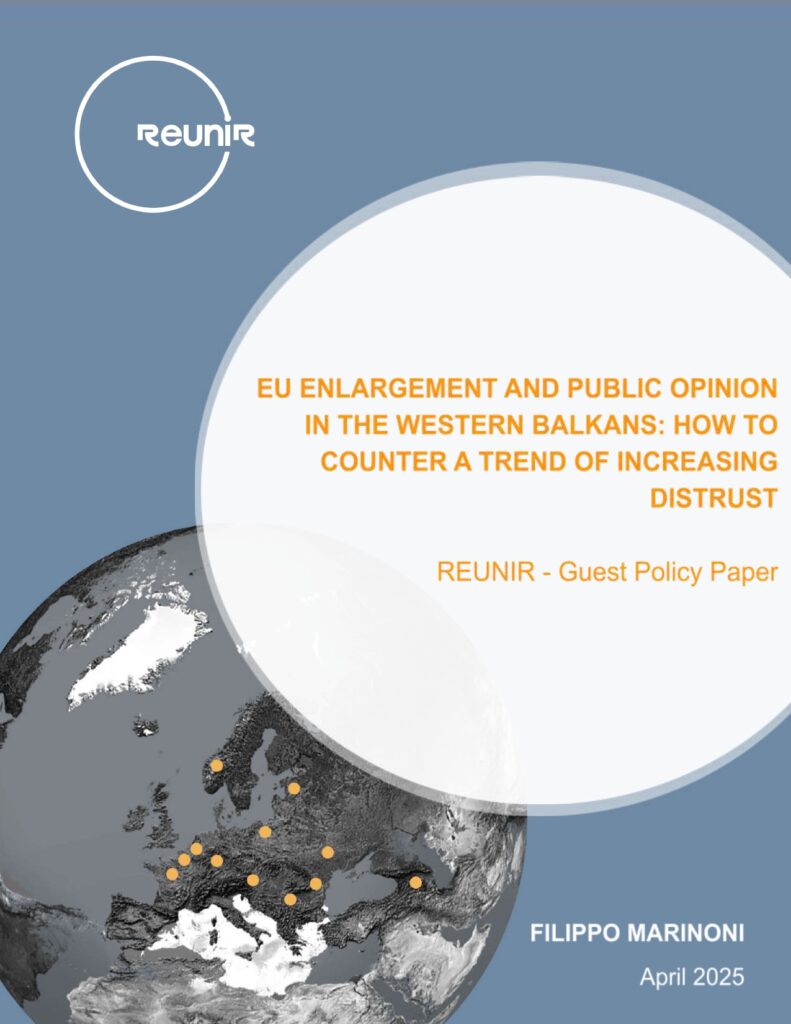Introduction and Background
At the 2003 EU-Western Balkans Summit – also known as the “Thessaloniki Summit” – the EU pledged that “the future of the Balkans is within the European Union”. For more than 20 years though, the EU enlargement process has faced obstacles both within the EU and the Western Balkans Six (WB6). In the Western Balkan region, issues such as democratic backsliding, political fragmentation, corruption, and limited judicial independence have delayed alignment with EU standards. Economic convergence remains distant. Yet, the geopolitical scenario has seemingly given new momentum to the enlargement process, particularly since Russia’s full-scale invasion of Ukraine in 2022. Enlargement is now regarded by Brussels as a geostrategic investment in peace, stability, and economic growth across Europe.
Within the EU, concerns over the Union’s capacity to absorb additional members and the blocking strategies of some countries have fed feelings about “enlargement fatigue” or even outright “enlargement resistance”. No new members have joined since Croatia’s accession in 2013, and before that, Romania and Bulgaria in 2007. To make the enlargement process more “credible, predictable, dynamic, and subject to stronger political steering”, the Commission revised its enlargement methodology in 2020. In its intentions, this action should have enhanced credibility and trust on both sides. However, over the past five years, progress for the WB6 has remained limited. While the renewed enthusiasm for enlargement has led to some advancements since 2022, all the countries in the region still appear far from being integrated, with Montenegro perhaps being the exception, as it considered the frontrunner.
Against this backdrop, is the EU still perceived by WB6 citizens as the (desirable) destination of their countries’ journey? And, notwithstanding the slow progress in the enlargement process and the unmet promises of integration, is the EU still seen as a herald of benefits for both the candidate countries and their citizens? Additionally, are there significant differences in how public opinion across the six countries of the region perceives the EU?
Assessing whether the EU is still perceived as a reliable partner by WB6 citizens and the ultimate destination of their countries’ integration process is highly relevant as it helps to determine who still believes in EU accession (“accession optimists”) and who, on the contrary, opposes it or has little hope in its realisation (“accession pessimists”).
The level of societal support – or the lack thereof – is indeed a crucial element that cannot be overlooked by governments when aiming for a sustainable policy. For the candidate countries to complete the European journey, positive citizen discourse and opinions about EU accession are pivotal factors. Indeed, the effectiveness and the mobilisation capacity of the civil society in the Western Balkans have been once again made clear with the mass protests that are taking place in Serbia.
Author: Filippo Marinoni, PhD Candidate in Global Studies at the University of Urbino (Italy) and Visiting Fellow at CEPS.

